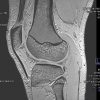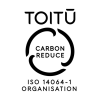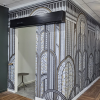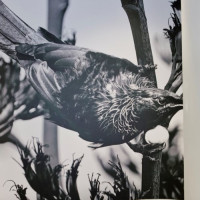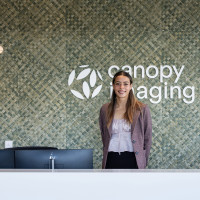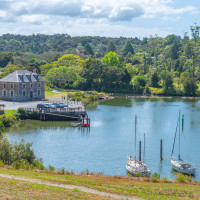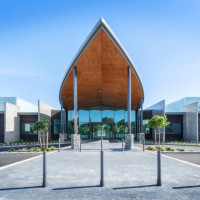A portacath is a type of central venous line which is a soft, hollow tube that we place into a large vein and leads into the heart. The line can be used to give you fluids, blood products and medicines, and to take blood samples. It is designed to stay in your body for many months or even years.
Why are portacaths required?
Portacaths are suitable for people who need regular, long term intravenous treatment including those who need chemotherapy or immunotherapy.
Ports may also be used for withdrawing blood for tests, and power ports (the type Canopy Imaging use) can be used for CT and MRI contrast scans.
A portacath is made up of two parts:
One end of the catheter (hollow tube) sits at the entrance to the heart and the other end is connected to the port.
This is a small metal chamber that is implanted underneath the skin in the chest area. A special needle can be inserted through your skin and into the port so you can have your treatment.
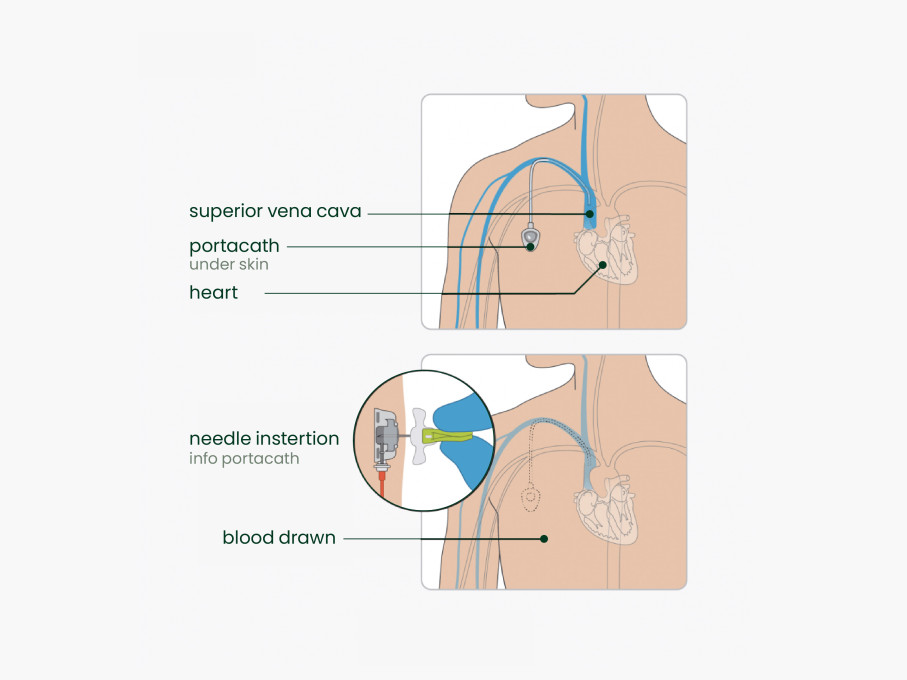
At the end of the procedure, you will see two small scars. One of them is about 1 cm long and is at the base of the neck or just under the collar bone. The other scar is a bit lower down on your chest and is about 3 to 4 cm long.
Just underneath this scar you may notice a small bump under your skin, this is the port. Both scars have dissolvable stitches under the skin – these do not need to be removed.
Where can I get portacath insertion done?
This procedure is only available at out Hastings clinics
Please select your location belowon the right to contact us
